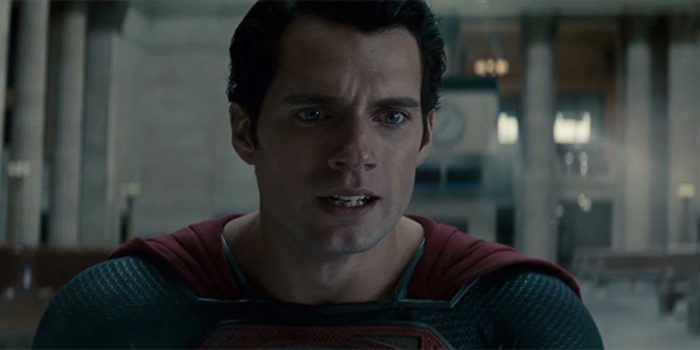'The Dark Knight' And 'Man Of Steel' Writer David S. Goyer Shares The Worst Studio Note He Ever Received
Writer and comic book aficionado David Goyer has had an interesting career when it comes to those marquee characters, having written Blade and Blade II (nobody's likely to forget he stepped behind the camera to write and direct the unfortunate Blade: Trinity) and receiving story credit for the Dark Knight trilogy. After spending some time away from the comic book movie scene, Goyer's opening up about his past experiences and details of one of his most memorable run-ins with some clueless studio executives.
Studio Speak
In a wide-ranging interview with THR, Goyer is asked about the absolute worst studio note he ever received on one of his movies, not including the time he was told to "take the magic out" of his Doctor Strange script.
"One note I got was on Man of Steel, where the ending involves Superman utilizing the pod that he arrived in as a child in order to bring down General Zod's ship. The note we got from the studio said, 'You have to change that.' We asked why. They said, 'Because if Superman uses that pod and it's destroyed while saving the city, how is he ever going to get back home to Krypton?' There was just this long pause and we said, 'Krypton blew up. You saw 30 minutes of it!'"

Look, there are plenty of directors out there who'll swear up and down that studios are a pleasure to work with and rarely live up to their common reputations...but yikes. This is just one of those stories that almost singlehandedly sets back the general perception of the entire profession, no way around it.
To help balance things out, Goyer also describes what the best note he ever received happened to be.
"I actually received some pretty good notes from [Apple TV development head] Matt Cherniss — and I'm not just saying that because Foundation is a pending project. Early on in the process, I used to talk about how time is a character on the show. And we were twisting ourselves around the axle of trying to figure out, how do we deal with these complicated time jumps and slightly left-of-center story structures? And he just said, 'F*** it, just lean into it.' So we broke with traditional story structures in various ways. The structure changes from episode to episode. Most of the time, studio executives say, 'How do you make it more normal? How do you make it fall in line with what the audience would expect?' He encouraged me to not do that, which was unusual."
See, they're not all so bad!
Studios aside, professional screenwriting is a fraught business and the final draft doesn't always reflect the talents of the actual writer. Goyer points to a few of his projects that he feels most captures his original intentions: "The films I thought reflected my work accurately were the Dark Knight films. I think Foundation does, the first seven episodes of FlashForward, the first couple of seasons of Da Vinci's Demons, the first two Blade films."
The rest of the interview is well worth checking out, which includes tidbits on his personal favorite superhero movies, his perspective on the editing battles that took place on Terminator: Dark Fate, and even a physical altercation he was rumored to have had with Wesley Snipes.
